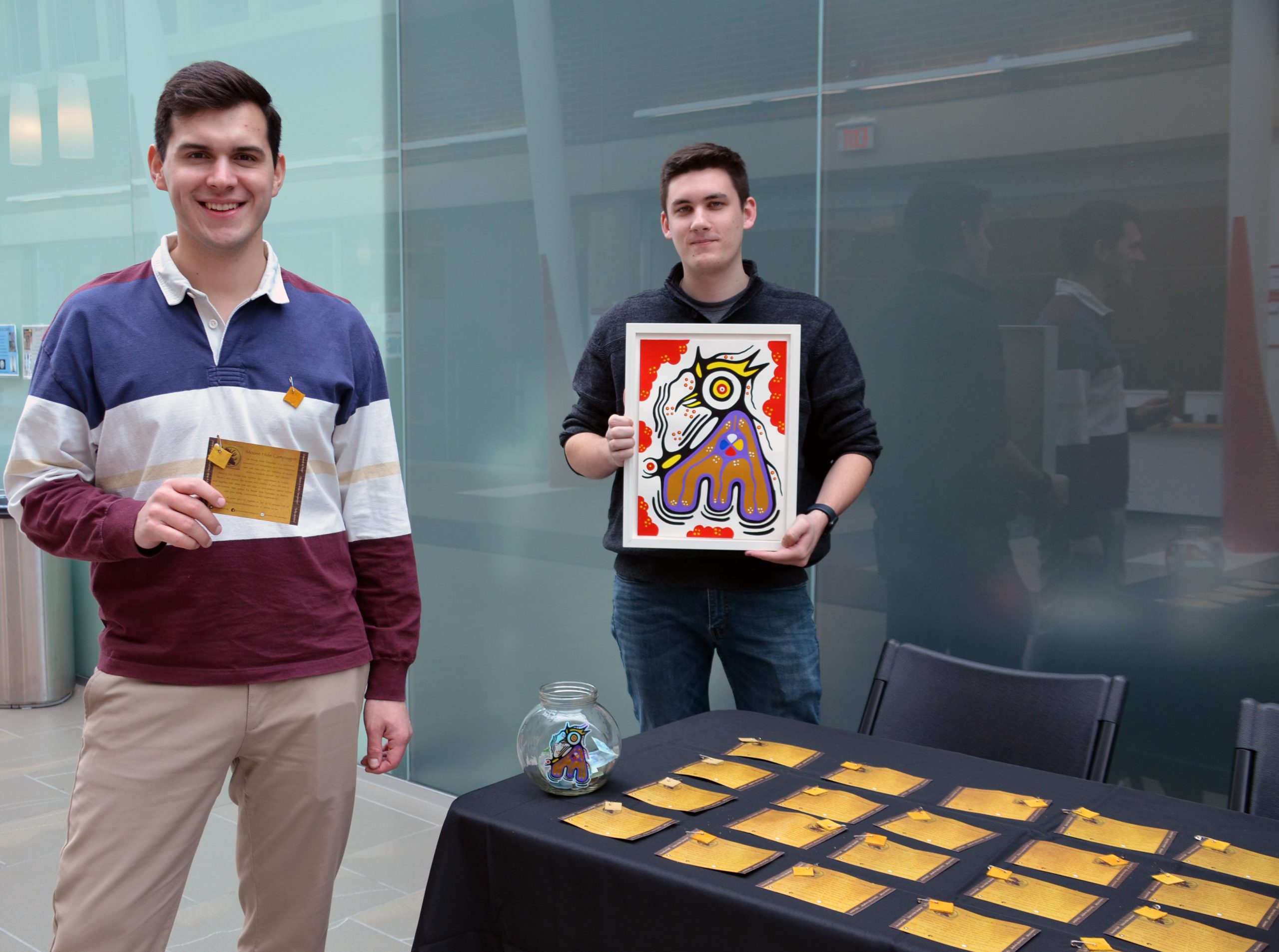As a young Mi’kmaw man and a member of Membertou First Nation in Nova Scotia, Levi Marshall ’23 has seen the suffering first-hand.
“We see it a lot in our families and friends – women and girls going through hard times in their personal relationships and families,” said the third-year Osgoode student.
“I wanted to do something that would somehow help and bring awareness to an issue that’s super-important and personal for me,” he added.
That’s the motivation behind the Osgoode Indigenous Students’ Association’s (OISA) Moose Hide Campaign, which will culminate on March 8, International Women’s Day, with a photo booth in Gowlings Hall to capture images of support for the national Moose Hide Campaign Day on May 11. In the days leading up the main campaign event, OISA members will be distributing moose hide pins, the symbol of the campaign.
The idea for the national campaign was born in 2011 by campaign co-founder Paul Lacerte, a member of the Nadleh Whut’en Band in northern British Columbia, and his daughter Raven Lacerte as they hunted for moose to help feed their family for the winter and for cultural purposes. It has since grown into a national, Indigenous-led, grassroots movement to undo the toxic effect of residential schools and to engage men and boys in ending violence against women and children.
Campaign literature notes that the need to take action against gender-based and domestic violence is more critical than ever because the rate of such violence has increased dramatically during the COVID-19 pandemic.
Fittingly, the OISA event comes immediately after the association’s RedDress Week, which honours missing and murdered Indigenous women and girls. Marshall, who serves as OISA’s co-director of communications, and his Moose Hide Campaign co-organizer, OISA co-chair Justin Thompson ‘23, said OISA decided to hold the event before the national day because classes at Osgoode will not be in session in May.
Thompson, a member of Nipissing First Nation, said the campaign is about education, awareness and action. And while it seeks to address violence against all women and children, he pointed out that Indigenous women are disproportionately affected. According to statistics listed on the Moose Head Campaign website, spousal violence against Indigenous women is three times higher than violence against non-Indigenous women and Indigenous women are killed at six times the rate of non-Indigenous women.
The co-organizers said those numbers reflect the horrible legacy of European colonization, the Indian Act and residential schools.
“Not knowing what a healthy relationship looks like, that can be troubling,” said Marshall, “and many people haven’t been able to get the support they need.”
Thompson said there’s a lack of funding for community-based social and mental-health services and many Indigenous survivors of abuse are reluctant to use government-based services.
“The way Indigenous people have been treated by governments hasn’t instilled trust,” he noted, “and that underlines the need for community-based options for these services.”
Thompson and Marshall said that wearing a moose hide pin signifies that individual’s commitment to honour, respect, and protect all women and children and to speak out against gender-based and domestic violence. To date, more than three million moose hide pins have been distributed free of charge to communities, schools and workplaces across Canada.
Among other activities, the Moose Hide Campaign challenges supporters to fast and gather together in solidarity to put the national spotlight on the issue of ending domestic and gender-based violence. During the 12th annual Moose Hide Campaign Day on May 11th, said Marshall and Thompson, there will be a live stream and online interactive workshops designed to help thousands across the country to fast to end violence and take action in their own communities.
The two co-organizers expressed their gratitude to other OISA executive members and volunteers for assisting with this year’s Moose Hide Campaign, which was suspended for the past two years due to the pandemic.
After completing their legal education at Osgoode, both Thompson and Marshall will be articling for the law firm of Olthuis Kleer Townshend LLP, one of Canada’s leading Aboriginal law firms.
